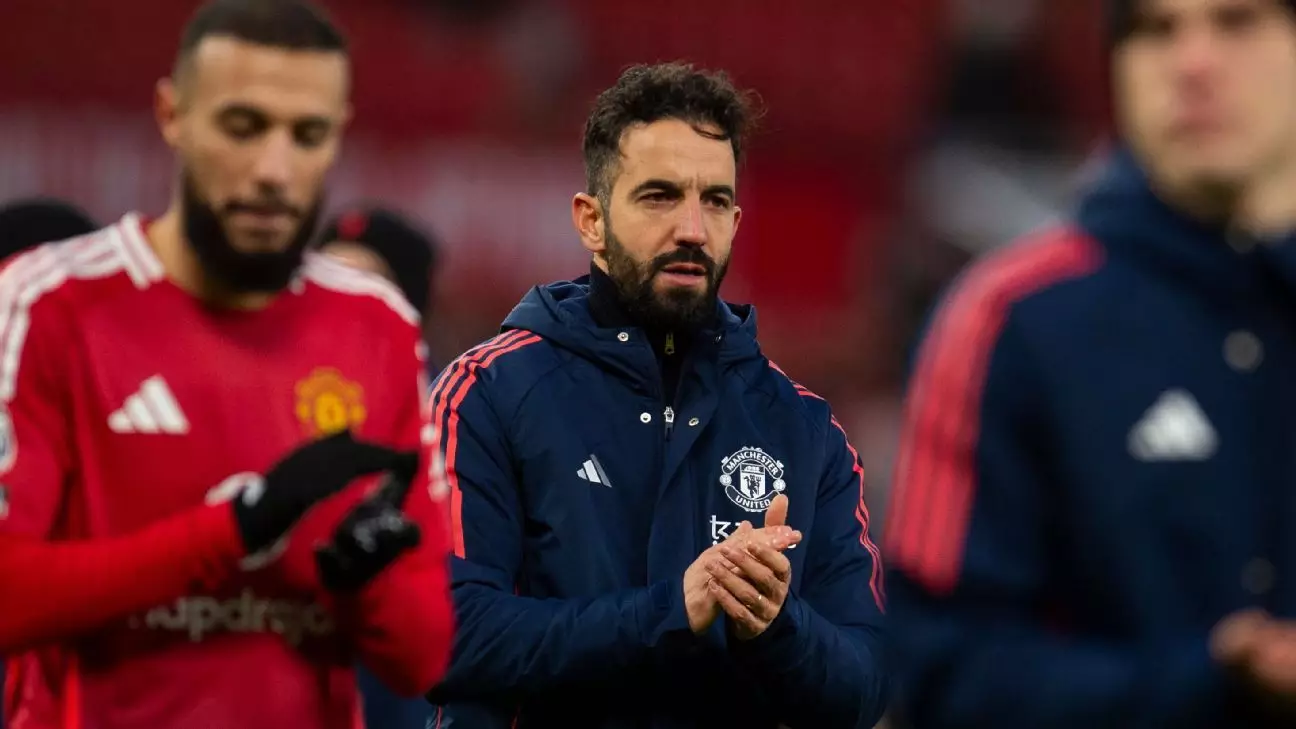As the dust settles on Manchester United’s recent league encounters, it’s crystal clear that head coach Ruben Amorim is navigating a tumultuous period in the club’s storied history. The aftermath of a disheartening 3-0 defeat to AFC Bournemouth has left a palpable air of discontent lurking over Old Trafford, a situation exacerbated by a series of troubling performances that seem to be spiraling out of control. With mounting problems related to set pieces, missed scoring opportunities, and an unsettling trend of conceding early goals, Amorim faces significant challenges that extend beyond mere tactics.
In his brief tenure, Amorim, who previously enjoyed substantial success at Sporting CP, has witnessed his side shift from a position of optimism to one marred by anxiety and disappointment. Manchester United had largely transformed Old Trafford into an impregnable fortress, but now, after just three weeks, two home defeats shatter that image. The 4.5-hour journey to witness this latest debacle would have left the dedicated travelling supporters feeling despondent, watching as their team faltered against a Bournemouth side that capitalized on every United misstep.
The statistics paint a stark picture. Conceding the first goal for the sixth consecutive outing is a trend that is becoming alarmingly familiar. These early setbacks have not only disrupted the flow of games but also seemingly drained the confidence of players who thrive on taking the lead. With Borussia Dortmund’s cautious assessment of United’s inability to recover from an early deficit, concerns ripple through the fanbase that only deepens with each passing match.
One of the most glaring issues facing Amorim is the team’s baffling inability to defend set pieces. The Bournemouth match highlighted this vulnerability, as Ryan Christie’s precise delivery exposed a disorganized United defense. This incident marked the seventh goal conceded directly from set pieces in a mere six games—an untenable statistic for any club, let alone one of United’s stature. The coach’s admission that improving this facet of play is crucial doesn’t hide the urgency for immediate solutions.
Despite having a competent set-piece coach in Carlos Fernandes, the repeated failures at critical moments raise questions. Are the players lacking the necessary understanding and cohesion on the pitch, or is there a deeper tactical shortcoming? Each set piece has transformed into a significant threat rather than an opportunity to regain composure, compounding the pressures on Amorim who must contend not only with technical issues but also the psychological toll they take on the squad.
While defensive frailties weigh heavily on Amorim, an equally pressing issue is the lack of ruthlessness in attack. Chances have been created—yet the failure to convert these opportunities has haunted United time and again. In the recent loss, Bruno Fernandes, typically a catalyst for creativity, squandered several inviting chances that might have changed the course of the match. The inability to capitalize on such opportunities reflects not only on individual players but also on the overall team ethos which must be rejuvenated.
This failure to score whenever the team is on the ascendancy may inflict serious harm on the squad’s morale. A defeat that could have been mere misfortune instead morphs into a crisis of confidence, one that Amorim must combat head-on if he hopes to steer the club clear of such dark waters.
As Manchester United approaches the next round of Premier League fixtures against tougher opponents like Wolverhampton Wanderers and Newcastle United, Amorim’s mandate is clear: drastic changes are necessary. Tactical adjustments in both offensive setups and defensive organization need to take priority, allowing the team to not only reclaim stability but also restore the faith of disenchanted fans. The task at hand requires resilience and a united front; qualities that have been characteristic of successful Manchester United sides throughout the ages.
Moreover, more than just tactical coherence, Amorim must also reignite the spirit within the team. It will take not just strategy but also psychological fortitude to combat the self-doubt that has set in after consecutive mismatches. The storm Amorim spoke of has indeed arrived. Thus, the journey to transform Manchester United transcends tactics alone—it’s also about instilling a winning mentality, which has been the hallmark of the club’s illustrious history. Whether Amorim can navigate this critical junction will define not only his future but also that of a club desperately seeking to re-establish its former glory.

